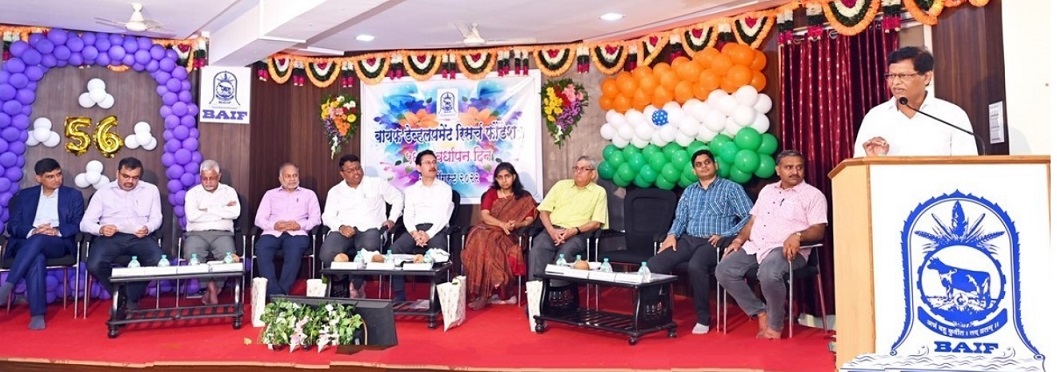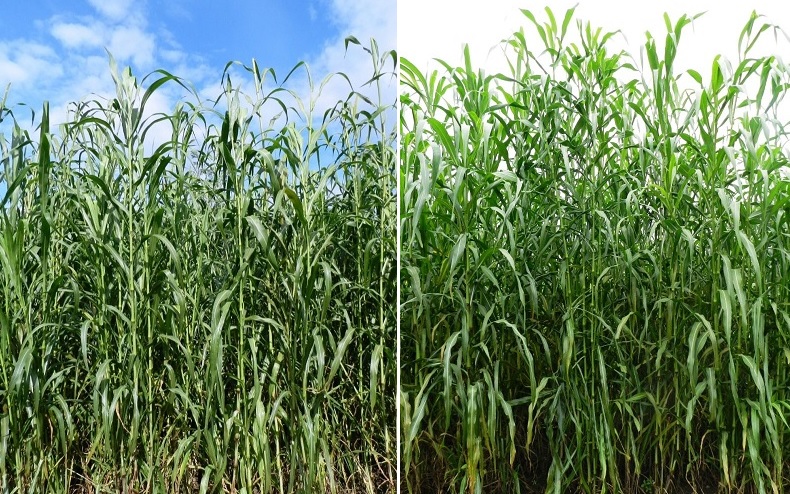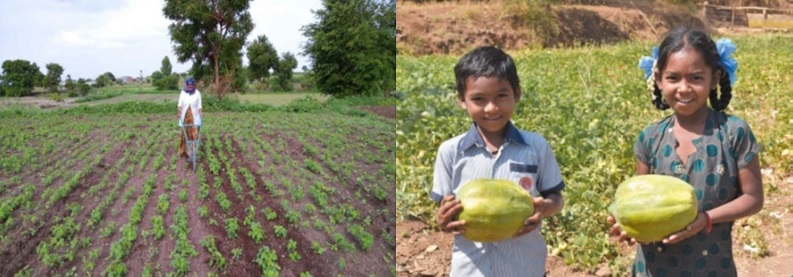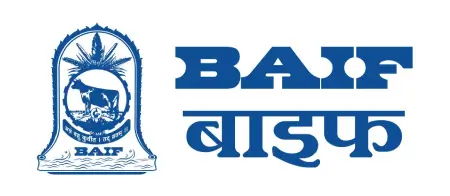
The rich legacy of BAIF is strewn with historical events, messages from the Founder of BAIF and celebration of various important national and international events. We bring before our esteemed visitors, our journey in Rural Development and our plans of commemorating important events scheduled this year with wholehearted participation of the rural community.

Bharat Kakade, President and Managing Trustee, BAIF, was speaking at the 56th Foundation Day celebration of BAIF held on August 24, 2022 at Uruli Kanchan near Pune
With an all-time high outreach of 31 lakh families in a year and the farm-based livelihood popularly known as the wadi programme also crossing a coverage of one lakh families in 2021-22, enabling the programme participants to earn Rs. 30,000 to Rs. one lakh per year and even more additional income, the year 2021-22 was a year of achievements. The Foundation Day of BAIF is an Inspiration Day for everyone associated with BAIF. The climate change adaptation programme has reached 300 villages across different agro climatic regions of the country. New programmes including ‘Samruddha Gram’ (holistic village development) launched in 52 villages with the good support of HDFC Bank and other corporate partners with an aim at village prosperity, Cutting edge technologies such as Ova Pick Up/In Vitro Fertilisation to produce high genetic merit embryos of dairy cattle and taking it to the field successfully, release of new fodder varieties BAIF Bajra 5 and BAIF Bajra 6 by ICAR, work on SNP-Chip for genotyping Indian breeds, mass plantation of 17 lakh seedlings by mobilising support of all concerned State departments and ensuring their survival, registration of Ashwini variety of rice (developed by the farmer Shri. Sunil Kamadi) with Protection of Plant Varieties and Farmers Rights Authority (PPV & FRA), Ministry of Agriculture Farmer Welfare, Government of India, felicitation of wadi farmer Shri. Vinod Bhengra, role model in the area, by Chief Minister of Jharkhand have been the other achievements.
Three new programmes namely, Jan-Samvad – understanding the needs of the families and responding accordingly which is already in force in South Gujarat covering 3000 families on a pilot basis with a plan for expansion in all the operational areas of BAIF – Jana Adhikar, facilitating the rural people to access and get benefit of the social welfare programmes of Government and the social enterprise programme – Kisan Mart with a plan to reach one crore families have been launched. The other key programme initiatives include, launch of Nature-positive solutions in agriculture, pro-carbon initiatives through soil health and agroforestry and developing women farmer leaderships in farming. The emergence of 50 farmer producer organisations (FPOs) in BAIF operational areas with the support of NABARD, promotion of strong FPOs under the SAMADHAN Project with Hindustan Zinc Ltd. including the Centre of Excellence in dairy under the same partnership and the success story of Karimnagar Breeders Welfare Association (dairy farmers’ association), which is operating 53 AI centres and achieving an impressive milk collection of 1.5 lakh litres daily were the other notable achievements. BAIF ensured uninterrupted supply of Liquid Nitrogen to all the 4200 livestock development centres and also provided services to dairy farmers without any break during the most adverse situation due to COVID lockdown in the country.

75th Independence Day celebration at Pune Head Office
The 75th year of Indian Independence – Azadi Ka Amrit Mahotsav was celebrated by BAIF Head Office in Pune and all other locations in 12 states, with immense patriotism, pride and joy, thereby making August 15, 2022, a historical day in BAIF. The national flag was hoisted by Mr. Bharat Kakade, President and Managing Trustee of BAIF at the Head Office in Pune today after a ceremonial guard of honour by the security personnel of the head office. Also present on the occasion were Mr. Shrinivas Kulkarni, Group Vice President – Finance, Mr. Sujit Gijare, Group Vice President – HR and Administration, Mr. Babasaheb Pakhare, Chief Thematic Programme Executive, Ms. Rasika Mendhekar, Mr. Mayur Sarode, Ms. Sucharita Dhar, Mr. Prashant Dudhade, Ms. Manasi Chiplunkar, Mr. Avinash Shinde and other administrative staff. A feeling of kinship and a pledge to continue contributing to nation building, was the spirit of the celebration at the BAIF Head Office and all the other offices located in the North, South, East and West Regions today.

The year 2021-22 was a year of consolidation, new collaborations and visioning for the future. Adoption of a global perspective while chartering Vision 2030 was considered to be an important aspect and hence, new partnerships were developed for scaling up climate change adaptation programmes, women-centric livelihoods and family-friendly renewable energy initiatives. The Low-Carbon Livestock Management Programme with its focus on genetic improvement, improved feeding and timely health care, improved the production efficiency of the herds leading to reduction in enteric emission and further stability in the lives of the families engaged in dairy husbandry and contributing about INR 20,000 crores (200 billion) to the rural economy. Modernisation efforts continued with the identification of a low-cost genome chip for estimating breed composition in crossbred cattle and breed purity in indigenous cattle. Launch of the Embryo Transfer Programme of indigenous cattle in the field accelerated breed improvement and milk production ability. Promotion of rural entrepreneurship has been launched through the Kisan Mart, an initiative, which will provide access to superior quality agro-based products at cost-effective prices, solar-dried edible products, native rice and silk products to peri-urban consumers and good quality agri and dairy inputs to farmers. The Climate-Smart Agriculture and Sustainable Natural Resources Management Programme with Land Degradation Neutrality, Water Use Efficiency, Renewable Energy and Pro-Soil Health approach ensured carbon positive development and generated an additional income of INR 2060 crores (20.6 billion) per year. The Climate-Smart Agri-Horti-Forestry (wadi) model has established a carbon sink by transforming large tracts of denuded wastelands belonging to scheduled tribe and other needy families into a green economy and contributed INR 1370 crores (13.7 billion) to the rural economy. On the occasion of the first Tribal Pride Day (Janjatiya Gaurav Diwas) observed by the Ministry of Tribal Affairs, Government of India on November 15, 2021, BAIF pledged to extend its work in tribal development in the country. The overall contribution of BAIF Programmes to the rural economy in the financial year 2021-22, has been INR 23,430 crores (234.30 billion) with an outreach of 31.33 lakhs (3.133 million) families from 93,738 remote villages across 325 districts including 59 aspirational districts in 12 states. Attention was also focussed on the non-farming communities to bring them under the universal support chain of BAIF. New opportunities are being explored in the rural non-farm sector for supporting rural livelihoods. The centrally-maintained COVID Dashboard enabled us to bolster the morale of families across BAIF programmes by extending necessary humanitarian, financial and medical support. BAIF celebrated the 75 year of Indian Independence – Azadi ka Amrit Mahotsav in various locations through community-led campaigns, workshops, rallies and farmers’ days.

The Ministry of Agriculture and Farmers Welfare, Government of India notified and released BAIF-evolved grain and fodder crop varieties of Pearl millet namely BAIF Bajra-5 and BAIF Bajra-6, as suitable for cultivation in Gujarat, Maharashtra and Madhya Pradesh vide their Notification of July 13, 2022.

We aim at bringing positive change in the lives of 10 million rural families belonging to economically weaker sections of the society, from present level of 4.0 million families, through resilient and sustainable means of livelihoods, improved quality of life, while contributing to the national and global sustainable development goals of climate action, gender equity, clean drinking water and overall ecosystem well-being. The strategy for achieving the goals will beempowerment and skilling of the local people, building social capital and collaborations with national and international science and technology institutions.
Sector wise Perspective Plans
1. Climate Smart and Sustainable Natural Resource Management:
• Land degradation neutrality
• Integrated ecosystem services
• Region-specific approaches to manage the resources
• Renewable and clean energy
• Climate change mitigation
• Application of digital technology in field programmes
2. Climate Smart Agriculture for Rural Livelihoods:
• Improvement in farm returns
• Ensure food and nutritional security of the resource poor families
• Adoption of agro ecological approaches
• Promotion of agro-biodiversity
• Promotion of value chains around the crops
3. Genome Selection-based Climate Resilient Livestock Management:
• Region-specific genomic selection and breeding
• Promotion of indigenous breeds
• Promotion of mixed farming systems
• Precision and smart dairy farms
• Stress-resistant high yielding forage crops
• Climate smart practices and pastoral systems
• Market linkages
• Enhanced economic returns and livelihood
4. Women-centric Development:
• Women leadership and entrepreneurship
• Drudgery reduction in agricultural operations through mechanization
• Women reproductive health and hygiene and child care
5. Water, Sanitation and Health:
• Personal and community health and hygiene
• Access to clean drinking water
• Access to sanitation facilities
• Strengthening traditional health practices in remote tribal areas
• Preventive community health care
6. Rural Non-Farm Sector Livelihoods:
• Skilling youth in non-farm vocations
• Promoting rural enterprises
• Promoting digital applications
7. Education
• Functional literacy, especially of women
• School infrastructure and facilities in remote areas
• Skilling the students in rural vocations and farming
